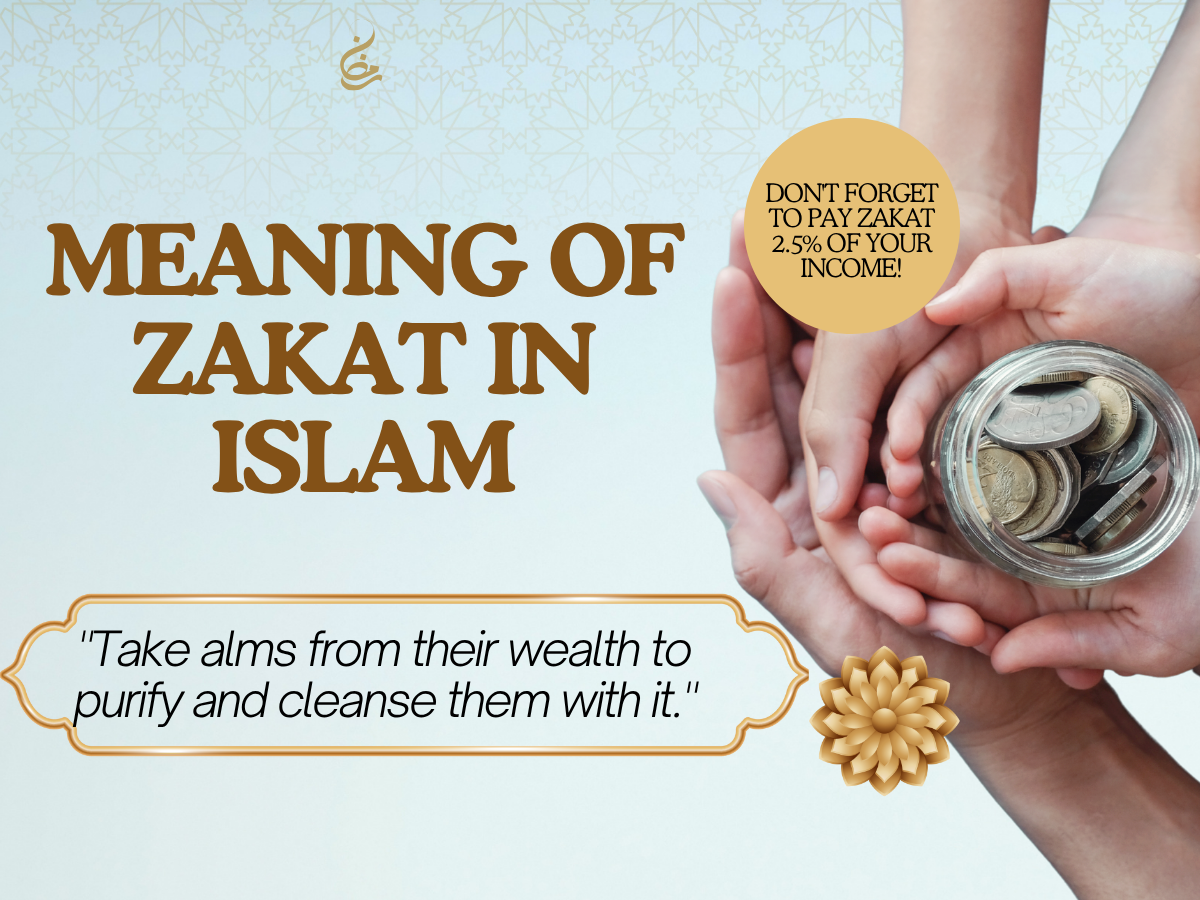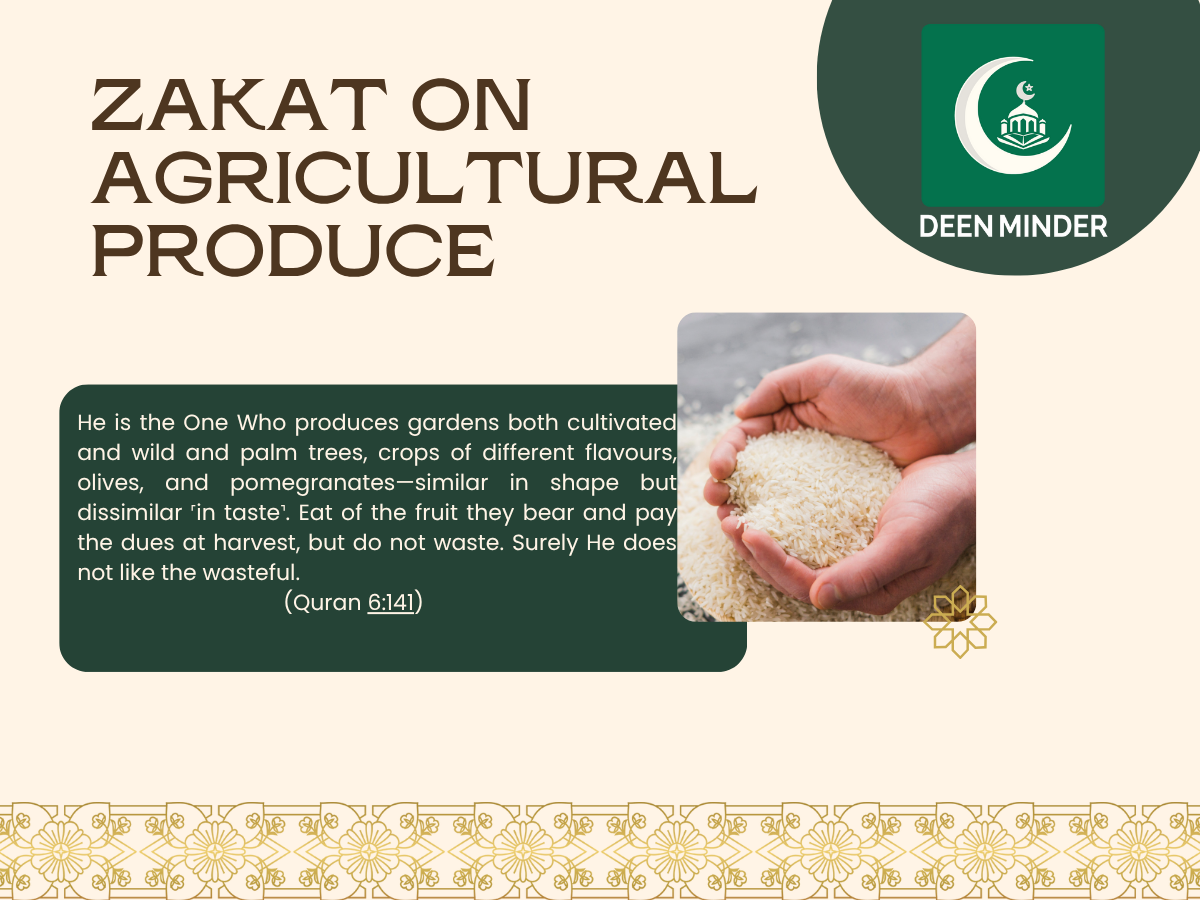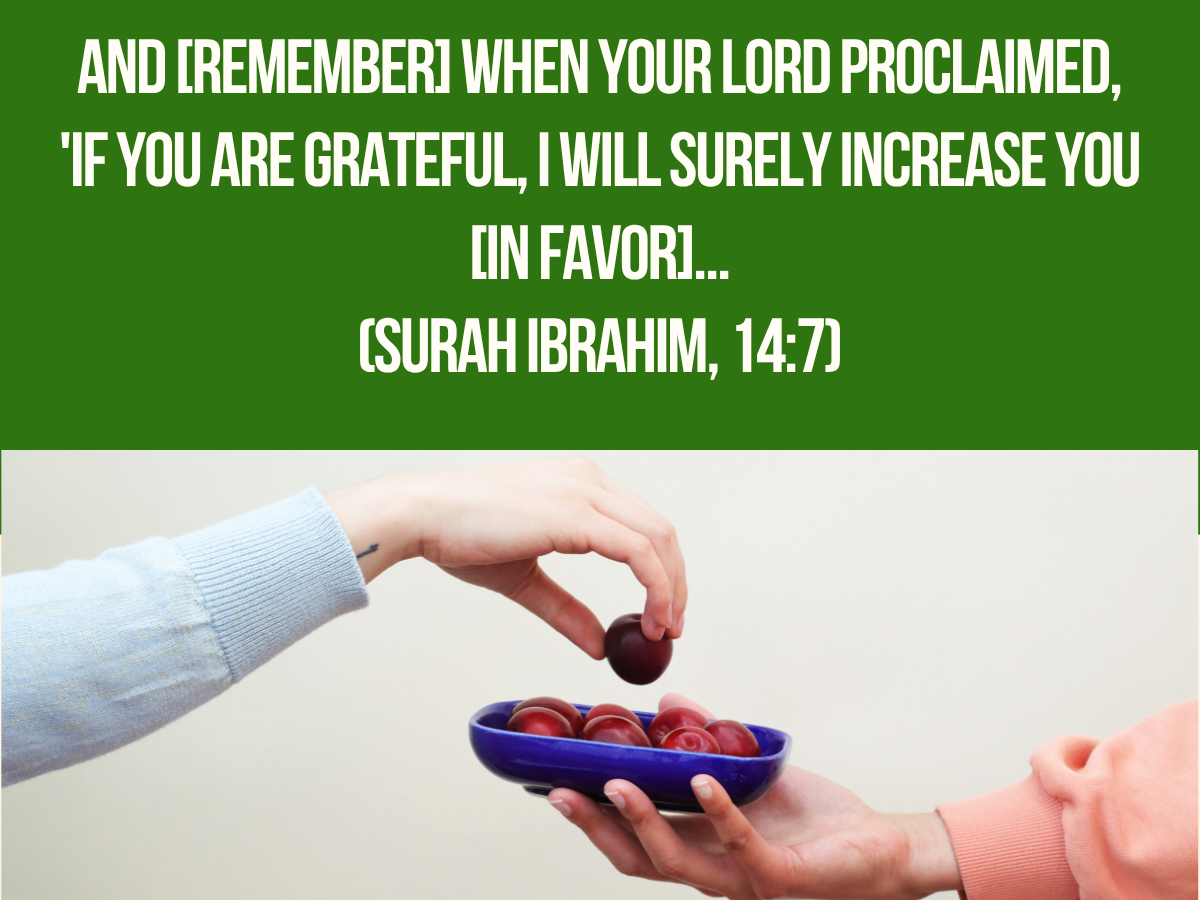My dear brothers and sisters, I am greeting you with the best of greetings, Assalaamu Alaikum Warahmatullahi Wabarakaatuh. It’s so pathetic that Muslims today don’t know the real meaning of Zakat or the importance of giving Zakat. And the word Zakat is being mentioned in a lot of verses in the Quran alongside Solah (prayer). This is what led to the saying of the scholars that:
Zakat is the brother of Solah (prayer)
We should know clearly that Zakat itself is a pillar of Islam, like the Solah (5 times daily prayer) that we observed. This means that Zakat is also an obligatory act of worship. The difference is that it has a condition under which it can be compulsory for an individual. Another mistake that people make is that they compare Zakat with Sodaqah, or some consider it a tax. This is a big NO.
What is the real meaning of Zakat in Islam?
Zakat is an obligatory act of worship mandated by Allah. The true meaning of Zakat is that it is a specific, mandatory portion of wealth, designated by Allah, to be taken from those who possess it (rich people) and given to the poor or needy (a specific set of people). Allah says:
Take, [O Muhammad], from their wealth a charity by which you purify them and cause them increase, and invoke [Allah’s blessings] upon them. Indeed, your invocations are reassurance for them. And Allah is Hearing and Knowing. (Q 9:103)
It is true that this isn’t easy as a human being, but we should all know that there are a lot of skilled people out there, struggling day and night, and yet not rich. This is the blessing of Allah that He gives to whom He wills. Giving you the wealth is also a trial that Allah wanted to test you with, whether you will spend in His way or not. And among the importance of giving Zakat is Allah’s promise to increase the wealth of those who spend from it.
But what you give in Zakah, desiring the face [i.e., approval] of Allah – those are the multipliers. (Q 30:39)
My dear brothers and sisters. Zakat is a divine ordinance by Allah, a right of the poor upon the wealth of the rich. Apart from the benefits and importance of giving Zakat, we should know very wealth that it is a mandatory act of worship and it is the third pillar of Islam. Imagine if any one of the pillars of a structure were to crumble, would that not threaten the entire building? Meaning that without observing Zakat when it is due, it will affect our faith.
The Prophet (ﷺ) send Muadh to Yemen, and said: “You are going to some people among the People of the Book. Call them to bear witness that none has the right to be worshipped but Allah, and that I am the messenger of Allah. If they obey that, then tell them that Allah has enjoined upon them five prayers every day and night.
If they obey that, then tell them that Allah has enjoined upon them charity (Zakat) from their wealth, to be taken from the rich and given to their poor. If they obey that, then beware of (taking) the best of their wealth. And beware of the supplication of the oppressed, for there is no barrier between and Allah.”
(Sunan Ibn Majah, 1783)
What is the difference between Zakat and Sadaqah?
Many Muslims confuse Zakat with Sadaqah, but the difference is significant. This is entirely different from Zakat Al Fitr.
-
Zakat is an obligatory act. It is the fixed, precise pillar of Islam. It has specific rules on the amount, the timing, and the recipients. It is a debt you must settle, or we say it is a must for you to pay it when it is due. You will learn the due time below.
-
Sadaqah is voluntary. It is the overflow of a grateful heart. It can be given at any time, in any amount—a dollar, a kind word, helping an elderly neighbor. The Prophet (ﷺ) said, “Every act of kindness is a charity.” (Sahih Bukhari).
Types of Zakat to be observed
Zakat applies differently based on one’s source of wealth. The main types include:
1. Zakat on money
Applies to cash, savings, gold, silver, and business profits — This is 2.5% annually once it meets the nisab (minimum threshold) and a lunar year passes.
When is Zakat due on money?
The Zakat is due on money when it reaches the nisab,, which is the amount equivalent to 85 grams of Gold or 595 grams of Silver. If you reach the amount this year, you will wait for the next year, and if you still have up to the equivalent threshold, you will pay the Zakat from your total money. And if by the next year after you the nisab, your money isn’t up to the threshold (nisab), then you won’t pay Zakat.
2. Zakat on agricultural produce
Farmers observed Zakat on agricultural produce, on grains and fruits that can be stored and measured like wheat, barley, dates, grapes, and others like them. Farmers pay 10% of the total yield if the crops are naturally watered, or 5% of the total yield if irrigated manually or mechanically, or 7.5% of the total yield if it is by natural and mechanical mixed farming.
The importance of giving Zakat on this is that it fosters gratitude to Allah for His sustenance. I believe that the real meaning of Zakat is becoming clear to you. Allah says…
And He it is who causes gardens to grow, [both] trellised and untrellised, and palm trees and crops of different [kinds of] food and olives and pomegranates, similar and dissimilar. Eat of [each of] its fruit when it yields and give its due [Zakah] on the day of its harvest. And be not excessive. Indeed, He does not like those who commit excess. (Q 6:141)
The nisab (minimum threshold) for this is 5 Wasqs. 1 Wasq is equivalent to 60 Sa‘, and 1 Sa’ is 4 Mudds. The Zakat on agricultural produce doesn’t need to be after a lunar year (1 Islamic year). It is after post-harvesting and preparing the produce fi,t and it reaches this threshold that you will pay its due. The Nisab is also equivalent to 612 Kilograms (double-check this in kilograms too for confirmation). Read more…
3. Zakat on Livestock
Applies to camels, cattle, sheep, and goats used for trade or breeding. Specific rules apply depending on the number owned. This applies to grazing animals beyond a specific number, and the amount is a specific animal, not a percentage. There are specific rules for this, which you can read here for a detailed explanation.
This diversity shows the meaning of Zakat in Islam as a system of fairness and inclusivity. Every Muslim, regardless of occupation, contributes according to their means.
Whom should the Zakat be given to?
Allah has clearly mentioned the eight categories of people who are entitled to receive Zakat. Not just that you give it to your Imam to spend, or just any cleric, unless they fall into the people mentioned by Allah, or are entitled to it as mentioned in the Quran. Allah mentions that the rich people’s Zakat should be given to…
“Zakat is only for the poor, the needy, those employed to administer it, those whose hearts are to be reconciled, for freeing slaves, for those in debt, for the cause of Allah, and for the wayfarer.” (Surah At-Tawbah, 9:60)
These eight recipients are:
- Al-Fuqara – the poor or those with nothing or very little.
- Al-Masakin – the needy or those struggling quietly.
- Al-‘Amilina ‘Alayha – Zakat administrators.
- Al-Mu’allafatu Qulubuhum – new Muslims or those inclined to Islam.
- Fir-Riqab – to free slaves or prisoners.
- Al-Gharimin – those burdened by debt.
- Fi Sabilillah – in the cause of Allah (education, da’wah, etc.).
- Ibnus-Sabil – travelers in need.
This list ensures that Zakat reaches every layer of society, establishing a comprehensive safety net that no government welfare system can match.
What is the importance of giving Zakat?
The importance of giving Zakat cannot be overstated. It is a direct command from your Lord, a right of your brothers and sisters upon you, and the key to unlocking blessings you cannot even imagine.
1. It increases and deepens faith: As we have said that Zakat is a pillar of Islam like Solat. Can you intentionally miss a Solah? No, because we know that it is a worship. So Zakat is an act of worship that must be fulfilled, too. To neglect Zakat is to overlook one of the very foundations of Islam. Giving it, however, reinforces one’s sincerity in worship. It’s a statement that we are not only Muslims by words but by action and sacrifice.
2. It increases your wealth: Zakat is like a spiritual investment that multiplies your blessings in this life and the next. Allah, the Most Generous, promises in the Quran..
“Whatever you give in Zakat, seeking the Face of Allah – it is those who will get a manifold increase.” (Surah Ar-Rum, 30:39)
When you fulfill this sacred duty, you are not losing wealth, you are planting seeds of barakah that will continue to grow long after you have given. The benefit of Zakat is both personal and communal. It purifies, uplifts, and unites.
“And [remember] when your Lord proclaimed, ‘If you are grateful, I will surely increase you [in favor]…'” (Surah Ibrahim, 14:7)
The greatest gratitude for the blessing of wealth is to use it in the way Allah has prescribed. By giving Zakat, you are translating the feeling of “Alhamdulillah” into a tangible deed. And in return, Allah promises an increase. This increase is not always in wealth only, it could be an increase in faith, a deeper sense of peace, contentment, and reliance on Allah.
3. Purifies our wealth: Zakat removes the unseen impurities (haram) that can cling to wealth, our earnings are purified through Zakat. It cleanses the spiritual “rust” that accumulates when we hold onto wealth without recognizing the rights of others. Allah says…
Take, [O Muhammad], from their wealth a charity by which you purify them and cause them increase, and invoke [Allah’s blessings] upon them. (Q 9: 103)
By giving, we acknowledge that everything we own belongs to Allah and that He entrusted us as caretakers, not owners.
4. It breaks the chains of poverty: When properly distributed, Zakat is one of the most effective tools to eradicate poverty. It empowers the poor, giving them dignity and opportunity instead of dependence. It prevents wealth from being confined to the elite and circulates it among all members of society — creating balance, compassion, and hope. This is the importance of giving Zakat. it heals the hearts of the giver and the receiver alike.
5. Fostering Brotherhood (Ukhuwah): Zakat strengthens the bonds of love between Muslims. When the rich remember the poor, and the strong support the weak, it fosters unity and compassion. This connection reminds us that we are one Ummah, bound by faith and responsibility. A single act of Zakat can ignite hope in a struggling family, educate an orphan, or heal a wounded heart. Our Prophet ﷺ said
“The parable of the believers in their affection, mercy, and compassion for each other is that of a body. When any limb aches, the whole body reacts with sleeplessness and fever.” (Sahih al-Bukhari & Muslim)
When you give your Zakat to a poor family, you are not just giving money. You are telling them, “I feel your ache. You are not alone. We are one body.” This action fosters a genuine love.
6. The spiritual battle against one’s soul: Our greatest enemy often resides within our own chests: the Nafs, our own self, that constantly whispers towards greed, hoarding, and love of this world. Allah says…
“And you love wealth with immense love.” (Surah Al-Fajr, 89:20)
It is normal that we all like money, but the problem is spending it, especially for others. Zakat is the spiritual jihad against this immense love. The great scholar Ibn Al-Qayyim Al-Jawziyyah (rahimahullah) described Zakat as a cure for the diseases of the heart, particularly miserliness.
It also made us realize that we are merely custodians, trustees. When we hold onto our wealth with a clenched fist, refusing the rights of others, it is as if we are whispering to ourselves, “This is mine.” But when we open our hands and give, we are proclaiming through our deeds, “This is Yours, O Allah, and I am returning a portion as You have commanded”.
“And give them from the wealth of Allah which He has given you.” (Surah An-Nur, 24:33)
Every penny given in Zakat is a brick laid in the fortress of your belief in Allah’s ownership. This is the first and greatest way Zakat deepens faith—it makes our belief in the Oneness of Allah a lived reality.
The real meaning of Zakat in Islam is thus more than charity, it is a system that purifies wealth, uplifts society, and ensures that no one is left behind. It is continuously funneled from the rich to the poor, eradicating extreme poverty, empowering the disadvantaged, and creating a stable economy where everyone has a stake. This is also the core importance of giving Zakat that modern economic systems struggle to achieve.
May Allah make us among those whose wealth purifies them, and whose Zakat becomes a means for their faith to grow, deepen, and flourish. May He accept from us and grant us a faith that is unshakable.



